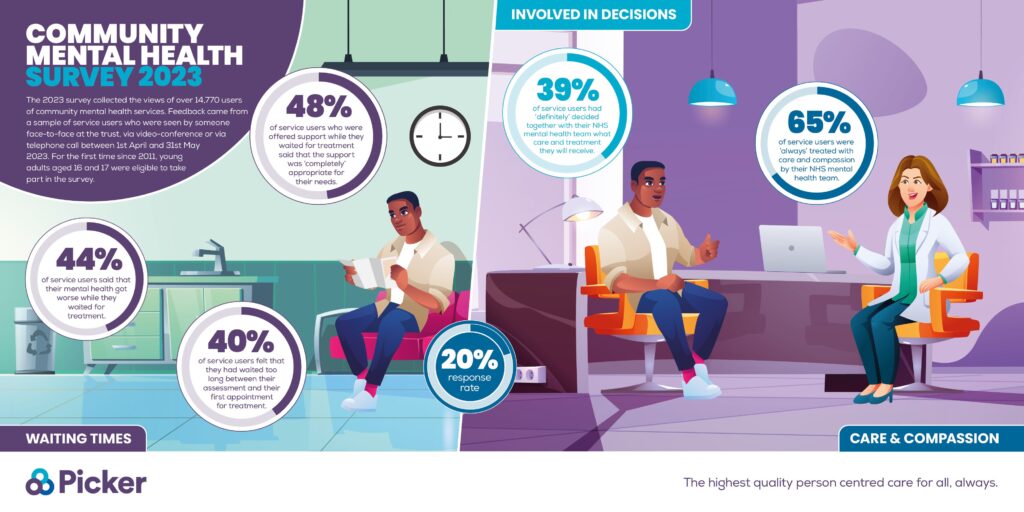Valuing women’s health experiences
This year, September 22nd marks EveryWoman Day, a project created to raise awareness and share experiences about women’s health, so that other women can benefit.
EveryWoman Day serves as a platform to raise awareness on the health conditions and disparities that women face and prompting open and compassionate discussion on how to address these challenges. Raising awareness about women’s health experiences is crucial for fostering understanding, promoting advocacy, and driving positive change.
In 2021, The Department for Health and Social Care (DHSC) launched a Call for Evidence to inform the first-ever government-led Women’s Health Strategy for England. This included a survey called ‘Women’s Health – Let’s talk about it’ that received nearly 100,000 responses from people that included women sharing their personal views and experiences, the experiences of a female family member, friend or partner, or their reflections as a self-identified health or care professional.
The results showed that more than 4 in 5 (84%) said there have been times when they (or the woman they had in mind) were not listened to by healthcare professionals. A thematic analysis of the data showed that commonly: symptoms were not taken seriously and/or dismissed upon first contact with GPs and other health professional, women had to persistently advocate for themselves to secure a diagnosis, and if they did secure a diagnosis, there were limited opportunities to discuss or ask questions about treatment options and their preferences were often ignored.
Understanding the lesser-researched health conditions that significantly affect the quality of life for women is crucial for promoting proper diagnosis, treatment, and support. There are a number of conditions with physical, emotional, and mental challenges that predominately impact women. These include:
Endometriosis: This condition occurs when tissue similar to the lining of the uterus grows outside the uterus, causing pain, inflammation, and sometimes infertility. It’s often misdiagnosed or overlooked due to a lack of awareness and research.
Polycystic Ovary Syndrome (PCOS): PCOS is a hormonal disorder affecting women of reproductive age. It can cause irregular periods, infertility, weight gain, and excessive hair growth. Despite its prevalence, many women struggle with misdiagnosis and lack of adequate management.
Interstitial Cystitis (IC): Also known as painful bladder syndrome, IC is a chronic condition characterised by bladder pain and pressure. It’s often mistaken for recurrent urinary tract infections, leading to delayed diagnosis and inadequate treatment.
Fibromyalgia: While this condition affects both genders, it disproportionately impacts women. It causes widespread pain, fatigue, and cognitive difficulties. Limited research and complex symptoms make it challenging to diagnose and manage.
Chronic Fatigue Syndrome (CFS): Another condition that affects both genders but is more common in women, CFS leads to severe fatigue that doesn’t improve with rest. Lack of awareness has led to stigma and inadequate medical support.
Vulvodynia: This is chronic pain or discomfort in the vulva, the external female genitalia. Women with vulvodynia often face delayed diagnosis and a lack of effective treatments due to limited research and awareness.
Premenstrual Dysphoric Disorder (PMDD): A severe form of premenstrual syndrome (PMS), PMDD causes extreme mood swings, irritability, and physical symptoms that can disrupt daily life. Awareness is essential to differentiate it from typical PMS and provide appropriate support.
Gynaecological Cancers: Cervical, ovarian, uterine, and other gynaecological cancers can have significant impacts on women’s lives. Early detection is crucial, but these cancers often lack the funding and attention given to other types of cancer.
Postpartum Depression (PPD): While postpartum depression is gaining recognition, there’s still a need for increased awareness. PPD can severely affect a woman’s mental health after childbirth, and support is vital for both the mother and child.
Pelvic Organ Prolapse (POP): This condition occurs when the muscles and tissues supporting the pelvic organs weaken, causing organs like the bladder, uterus, or rectum to drop. It’s often underreported and affects many aspects of a woman’s life.
Creating a community that values women’s health and well-being requires a combination of education, empathy, support, and engagement. By raising awareness for these conditions and involving healthcare providers, policymakers, and the general public, EveryWoman Day empowers women, support networks, advocacy groups, and online platforms to share experiences, connect with others facing similar challenges, and advocate for better research and treatments. Additionally, funding and conducting research specifically focused on these conditions can lead to improved understanding and management.
If you want to learn more, share a story, or discover resources, visit https://everywomanday.com.

